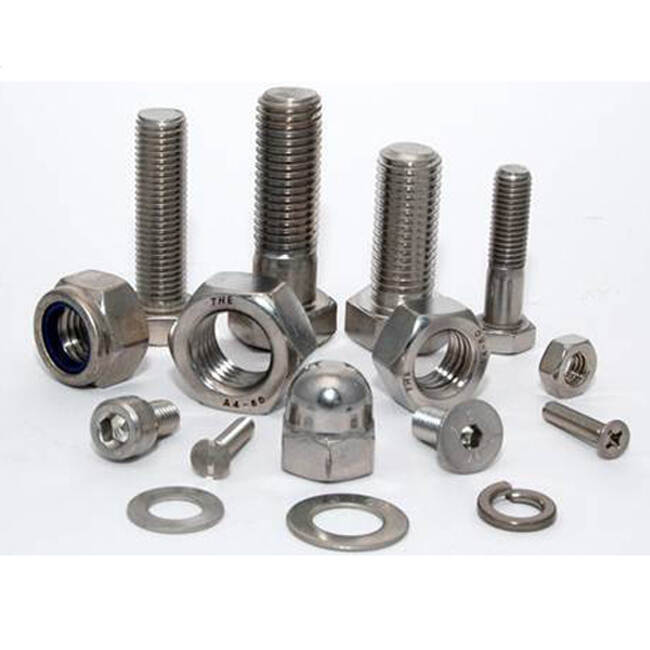Why should we Choose Stainless Steel Fasteners?
May 07,2022
Letter Shaped Threaded Fastener,Giant Snap Hook,Micro Turnbuckles
Stainless steel is a family of iron alloys, each containing more than 12% chromium. Chromium is an anti-corrosion component, so it creates the characteristics of strong corrosion resistance of stainless steel. Generally speaking, the higher the content of chromium, the better the corrosion resistance.

All stainless steels contain carbon in addition to iron and chromium. [Letter Shaped Threaded Fastener]But the carbon content is low and carefully controlled. The reason is that carbon can combine with chromium to form carbides, which makes the role of chromium in the formation of anti-corrosion ability very small. Therefore, to achieve the effect of anti-corrosion, when the carbon content increases, the content of chromium should be increased accordingly.
In addition, all stainless steels have a mixture of some other alloying elements. Nickel is the most important alloy element. It improves the corrosion resistance of steel and increases the toughness of steel in a low-temperature environment. It can help the steel maintain strength and prevent deformation at high temperatures. [Giant Snap Hook]Other elements, such as molybdenum, copper, silicon, aluminum, sulfur, selenium, tantalum, columbium, and titanium, are important components added in the adjustment of the chemical composition of many alloys to meet the working design requirements. They give stainless steel unique mechanical properties respectively.
Why stainless steel doesn't rust?
Stainless steel can be stainless because it will automatically produce a thin oxide layer on its exposed surface that cannot be seen by the naked eye. The oxide layer is inactive. Once formed, it will prevent further oxidation inside.
In the manufacturing process of Stainless Steel Fasteners, especially in casting and machining, the surface of Stainless Steel Fasteners will be contaminated by small steel particles scratched from processing tools or steel molds. [Micro Turnbuckles]If subsequent heat treatment is carried out, other components may be added to the surface. If such Stainless Steel Fasteners are exposed to the working environment without cleaning, they will rust due to impurities embedded in the surface. Therefore, in practical application, all stainless steels take "passivation" as the last process.
Passivation of stainless steel
Passivation refers to a cleaning process in which Stainless Steel Fasteners are immersed in nitric acid solution. When the fastener is taken out, an oxide layer is formed on its surface again, but there are no small particles embedded in it. To have good anti-corrosion performance and appearance, Stainless Steel Fasteners must be passivated.
Stainless steel alloys are divided into three categories: austenitic stainless steel, ferritic stainless steel, and martensitic stainless steel. There is also a mixed type - precipitation hardening stainless steel. Each one is different from the other two. They have their advantages and disadvantages. The three kinds of stainless steel are indistinguishable in performance. Among these categories, some subcategories contain one or more special alloys. In fastener terms, it is interchangeable.
Stainless Steel Fasteners have the advantages of corrosion resistance, high-quality appearance, and image, high strength, easy fabrication and welding, no painting, electroplating, or heat treatment, and can be 100% recycled. No matter in manufacturing, use, and treatment, the impact, and burden on the environment is minimal. Although the initial cost is high and the life cycle cost is low, it is the most economical component solution.
Searching for a Stainless Steel Turnbuckles For Sale from China, you can get high-quality Letter Shaped Threaded Fastener,Giant Snap Hook,Micro Turnbuckles at a nice price.